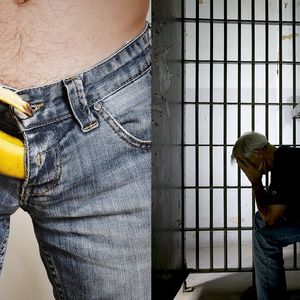Hillary Rodham
Clinton and Barack Obama are returning to the West Coast
to tap donors for cash to fund their hard-fought battle in
the pivotal Democratic presidential primary in
Pennsylvania on the other side of the country.
Obama, who has
been a fund-raising dynamo relying heavily on small
donors, announced Thursday his March take was more than $40
million. The total was less than the record $55
million he raised in February but still a sizable
amount that sustains his place as the fund-raising leader
among all presidential candidates.
Clinton is
expected to have raised about $20 million in March, but her
campaign has not announced any totals. Details of both
candidates' March fund-raising will be made public in
official reports to be filed with the Federal
Election Commission April 20.
Obama was using
his fat bankroll to considerably outspend Clinton in
television advertising in Pennsylvania, which holds its
primary April 22 and offers 158 delegates in the
battle for the nomination at the national convention
in August.
The Quinnipiac
University telephone poll, which ended March
31, showed that Obama had cut Clinton's lead in the
heavily industrial state from 12 percentage points in
mid-March to a nine-point advantage at the end of the
month. The Clinton campaign is counting on a
double-digit victory in the state to propel her to the
nomination. Obama now holds an overall lead in
delegates, the popular vote and total number of states
won.
Obama has
scheduled fund-raisers at the homes of four different
financial backers Sunday afternoon and evening in
Northern California.
Clinton attended
one fund-raiser Wednesday in Silicon Valley, and had
three planned Thursday -- in San Francisco, Pasadena, and
Los Angeles.
Obama notched
three key endorsements as both candidates scoured
Pennsylvania and courted the important union vote with
promises to shore up the stumbling economy and reverse
the stream of American jobs overseas.
In Pittsburgh,
once a center of the American steel industry, Clinton
promised $7 billion in annual incentives to U.S. businesses
that create new jobs at home, saying she would finance
the program by ending tax breaks to firms that move
jobs abroad.
Obama's new
endorsements included backing from a former congressman
whose powerhouse foreign policy credentials were seen
as a boost against criticism that Clinton and
presumptive Republican nominee John McCain have
leveled against the Illinois senator's limited security
resume.
Lee Hamilton, the
ex-Indiana representative who was the top Democrat on
the commission investigating the 9/11 attacks, threw his
support to Obama as did Wyoming governor Dave
Freudenthal.
Obama also
snagged backing from the National Union of Hospital and
Health Care Employees, an affiliate of the American
Federation of State, County and Municipal Employees,
which has endorsed Clinton. Henry Nicholas, president
of the affiliate union, said, ''Justice told me it was the
right position to take.''
The new
Quinnipiac poll showed Clinton well ahead of Obama
among Pennsylvania's white voters, 59% to 34%, while
Obama got nearly three of four black votes. The former
first lady is well ahead among women, while the two
are even with men.
At one appearance
Wednesday, Obama said he would give former Vice
President Al Gore, a Nobel prize winner, a major
administration position to handle greenhouse gas
emissions and global warming. Gore has given no
indication he desires a role in any future Democratic
administration.
Gore's
endorsement -- so far withheld -- is one of the most coveted
in this year's nomination fight.
The latest
Associated Press tally of delegates shows Obama leading
Clinton 1,634 to 1,500. The count includes superdelegates --
party leaders and elected officials who are free to
vote for whichever candidate they wish regardless of
primary and caucus outcomes -- although Clinton leads
in those votes 250 to his 220.
Presumptive
Republican nominee John McCain, meanwhile, disclosed he was
''getting together a list of names'' of possible vice
presidential running mates and hoped to announce his
choice before the Republican convention in early
September.
''I'd like to get
it done as early as possible. I'm aware of enhanced
importance of this issue given my age,'' said the
71-year-old Arizona senator.
The Democratic
also quarreled again over which of them would oppose or
modify trade deals such as the North America Free Trade
Agreement. Some labor leaders blame NAFTA for sending
U.S. jobs overseas, a claim that many economists
dispute.
As many as
830,000 union voters are expected to have a strong say in
how more than 4.1 million Democrats, a record
registration for Pennsylvania, allocate the state's
158 delegates to the Democratic national convention.
At the AFL-CIO
state convention in Philadelphia, Obama promised to oppose
trade pacts that threaten U.S. jobs. The organization is a
giant confederation of American unions.
His stance won
him criticism from at least one foreign leader Wednesday,
as Colombian president Alvaro Uribe blasted Obama for
opposing a trade deal between the U.S. and Colombia
that would remove most tariffs on American exports.
''I think it is
for political calculations that he is making a statement
that does not correspond to Colombia's reality,'' Uribe said
in a statement. (Steven Hurst, AP)


















































































